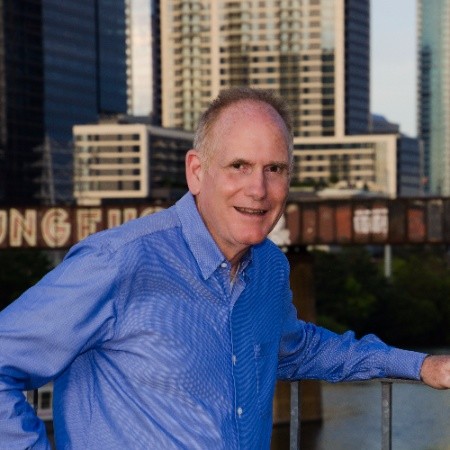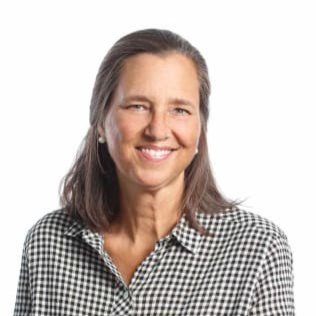I won’t deny that ageism exists. I’ve heard of hiring managers who’ve told their recruiters that they don’t want older candidates. Some recruiters demand to see every job you’ve held since 1984. You might have been asked on an application when you graduated from high school.

One of my clients told me as the second question in an interview he was blatantly asked about his age. He shook his head in bewilderment as he told me about this.
Another one of my clients was told in an interview, “We don’t typically hire people your age.” Who the hell is stupid enough to say this as an interviewer? These are two poignant examples of ageism.
There are other examples of ageism that 50+ job seekers experience, which makes me wonder if I were to lose my job, would I experience ageism. After all, I am in the 50+ category. I’m an older worker, but I could become an older job seeker.
While age is just a number — not an indicator of performance, education, productivity or skill — ageism is still widespread in the workplace. It can be experienced by both younger and older workers, but most frequently to those who are 45 and over.
Indeed.com
This is the grim reality, especially when we consider that older job seekers comprise the largest population of long-term unemployed, defined as those unemployed for 6 months and more. The Bureau of Labor Statistics states that the LTU rate for December 2021 reached a record 45.5%.
But all is not lost. As the pandemic is waning and employers are hiring at a greater rate, the older job seekers are increasingly seeing more opportunities. I see this effect in the Job Club I run at MassHire Lowell Career Center. People who’ve been out of work for more than six months have had multiple interviews and they’re landing.
I asked three of the most revered LinkedIn voices—Marc Miller, Susan Joyce, and Hannah Morgan— their thoughts on older job seekers who are looking for work. They answered five questions that address the struggles and strengths older job seekers possess. (Learn more about these thought leaders at the end of the article.)
Does ageism exist, and if so, where is it most obvious in the job search?
MM: Ageism has existed for a long time. In fact, many older workers practice ageism towards younger workers. This is a problem that goes both ways.
I think the most obvious example of ageism is asking for a range of year of experience, like 5-8 years of experience in digital marketing. Knowing how many years of experience one has is not a qualifier or dis-qualifier for a position.
This is a simple way to filter out older job seekers who have more experience but isn’t relevant on whether they are qualified.
What employers should be looking for is relevant experience and not trying to quantify this by length of time someone has worked in any single discipline.
Another example of ageism is when recessions occur this is the time that employers have to cull out who they think, notice I say think, will not be as valuable in the future. This is why older job seekers traditionally make up the bulk of the Long Term Unemployed (LTU). Employers have determined they will be less valuable in the future and therefore, will not hire them back first when the recession ends.
SJ: Unfortunately, there is no question that ageism exists. Numerous studies have documented and quantified it, noting that discrimination begins when people hit their 40’s.
It is most obvious in a job search after the interview when the job offer is not made to the 40+ job candidate, even after a great job interview.
HM: Yes. Job seekers convey their age and mindset in how they write their resume and LinkedIn profile. From using outdated resume formats to including References Available Upon Request to including all dates of employment to dates on education older than 5 years.
Older job seekers also may tend to apply for jobs they have significantly more experience than required. They may not have a good idea of how much they are worth in today’s marketplace.
They may not have the most current skills or demonstrate an understanding of current methodologies or trends. During job interviews, older job seekers may come across as arrogant, inflexible or condescending, or unable to relate to younger interviewers.
What is the most obvious stereotype employers have of older job seekers, and why do you think this is?
MM: Employers look at many older job seekers as not up to date with technology and slow to change. Some might say that older seekers can be stuck in their ways.
Is this universally true? Of course not!
I worked for IBM for 22 years through some very exciting innovative times. After I left I worked for 2 extremely innovated and successful tech startups. I am not a model baby boomer but I am no unicorn.
One of the challenges is the adoption of technology which has accelerated in the last 20 years, and the pandemic has supercharged that adoption. On top of that, if you are keeping up with the new innovations, it is not about just keeping up but getting online and engaging to prove your knowledge.
I will readily admit I hate getting on LinkedIn, Facebook and Twitter and regularly engaging to promote my “personal brand.” I was raised to work hard, keep my nose to the grind stone, do what is right and I will be rewarded. The world today is counter intuitive to the way I was raised. It is in this way that I am not terribly unusual.
All of this frames how employers see older job seekers on a macro scale. Unfortunately, hiring is very personal and if an employer believes an older job seeker is A, B or C then they will filter out some of the best candidates.
SJ: The most obvious stereotype I encounter is that older job seekers are less up-to-date with technology. Employers probably make these assumptions based on the behavior of an older relative or an older colleague or manager who was not up-to-date.
The best way to overcome this assumption is to have a complete and robust LinkedIn profile plus relevant professional activity on LinkedIn (posts, comments, and articles) that display both current knowledge and communications skills. This visibility and activity will demonstrate their understanding of how important LinkedIn is and how to use LinkedIn effectively (up-to-date!).
If possible, take a LinkedIn Skill Quiz for one or more of the skills in the Skills & Endorsements section of the profile (perhaps the Skills with the fewest endorsements). Or take some of classes that result in professional certifications relevant to the job seeker’s target job.
HM: That their skills and knowledge are not up-to-date and they will be slow or hesitant to adapt or change. Older job seekers may not address the changes they’ve recently had to adapt to or may not have needed to use new technology or update skills in their last roles.
This doesn’t mean they can’t adapt or aren’t interested in learning. Stereotypes exist because of someone’s previous interactions. So if an interviewer or hiring manager has spoken to or worked with an older job seeker who lacked current skills or was hesitant to change, that cements the stereotype.
What is one major strength older job seekers demonstrate, and why do you think this is?
MM: The one thing that an older job seeker has is years and years of experience. I like to think of this as 30-40 years of big data.
We have seen a lot of problems, and solved a lot of problems.
Years ago I developed and taught a problem determination workshop for IBM’s support staff. The more problems you experienced in any given domain enhanced your ability to solve the next problem in the same or adjacent domain. My job was to help them experience and solve as many problems as possible AND understand how they did it.
The issue is our ability to use that database of knowledge called experience and then being able to communicate in a coherent, easy to understand way so that employers see the value.
Remember it was not that long ago that CEO of Facebook said “I want to stress the importance of being young and technical. Young people are just smarter.”
What they do not have is that database of big data that comes from experience.
SJ: Contrary to the “set-in-their-ways” assumption, I think that older job seekers have more options available based on having more experience. Because of their age and experience, they have a bigger “window on the world” and can see more alternatives than someone with less experience.
For example: If you need someone to drive you to the airport in a busy city at a busy time with the flight leaving soon, would you prefer a young driver who followed the route given him by his boss or an older experienced driver who knew all of the short cuts and alternate ways to get to the airport even if a traffic jam on the primary route stopped other traffic? Not hard to conclude the older driver would be a better choice!
Maybe the employer has always done a process in one specific way, or viewed a customer or an opportunity in one specific way. An older employee with more experience may see—and have more experience with—using other methods to accomplish that (or similar) tasks with different processes that may ultimately be more successful.
HM: Older job seekers tend to be more loyal, possess a stronger work ethic, and have stronger leadership and decision-making skills from experience and training. Their work ethic was formed early in their career when hard work and dedication was rewarded. And their life experience and access to training over their career have given them tools and experience to draw upon.
How can older job seekers improve their written and verbal communications in order to land a job?
MM: This is all about doing new things before you are ready.
To quote one of my favorite and irreverent journalist Hunter S. Thompson,
“Anything worth doing, is worth doing right”.
When you do something for the first time you will rarely do it right!
I have helped many start blogs and podcasts. I always tell them that what they produce may suck at the beginning. You will have to exercise the communications muscle to find your voice. That may mean producing material that is not very good.
Early blog posts on the Career Pivot blog were pretty bad. That is why I hired people to help me in areas where I was not very good. I am not a good writer but I have learned how to leverage people, like a virtual assistant, who edits my material, and technology like Grammarly.
Over time the communications muscle has gotten stronger through repetitive action. However, this requires taking chances, taking some criticism and admitting that you do not know how to do everything.
You have to move forward and do new things before you are ready.
SJ: Observe what people are writing and saying in social media and elsewhere. Focus on those people who are the most successful (in a positive way). Then, practice, VERY carefully by asking and answering questions on sites like Quora, Reddit, Digg, etc. When ready, start a blog or write articles on LinkedIn (relevant and professionally), Medium, or a personal/professional blog.
For verbal communications, join Toastmasters. The meetings may be virtual now, but the training, experience, and network are invaluable.
Possibly, take some classes in writing and speaking. Free classes are frequently available online. Or read some good books about those topics.
HM: Being active on social media, older job seekers can show that they don’t fit the stereotypes. Posting and commenting about new trends in their industry can demonstrate an interest and understanding. Comments should be respectful and convey an understanding and tolerance for others viewpoints.
The act of being active on social media also shows a willingness to embrace new technology.
What advice would you give an older job seeker who’s hunting for a job?
MM: In post-pandemic recovery, every older job seeker needs to reassess what he or she really wants to do. This is not about what you used to do because what you used to do may be gone or changed significantly.
Did you actually enjoy doing what you used to do?
If you did, what was enjoyable?
If not why were you doing it?
You really need to look at the disruption that COVID-19 pandemic has created. There will be a lot of good that will come out of this black elephant event called the COVID-19 pandemic. Where do you want to fit in?
What problems do you want to solve? Who has those problems?
If you are going to continue to work because you either have to or want to, you will have to reassess where you fit in this new world and what will energize you to keep moving forward at the same time.
To quote the famous executive coach Marshall Goldsmith, “What got you here, won’t get you there”.
Your first choice, are you willing to evolve and grow in the 2nd half of life.
Then it is your choice how to evolve and grow.
SJ: I have 2 pieces of advice for older job seekers who are job hunting now.
- FOCUS!
Know the job wanted next and, preferably, at least 10 or 20 target employers. Being an either-this-or-that does not work today when LinkedIn profiles are so visible! Recruiters avoid someone who doesn’t seem to be really interested in the job they are trying to fill. And an either-or candidate looks undecided.
In addition, the undecided job seeker does not usually effectively demonstrate their professional expertise in both kinds of jobs. Their LinkedIn profiles are “watered down” because they cover multiple topics superficially—not very convincing and not including a sufficient quantity of the right keywords to be found easily by recruiters.
- NETWORK!
The fastest, inside track to landing a new job is being referred by an employee. One of the biggest advantages of being an older job seeker is all the people the job seeker knows and has worked with over the years. From family, friends, and neighbors to co-workers, bosses, and employees—that network is one of the biggest benefits of being an older job seeker.
Reaching out and reconnecting to people from the past using Google, LinkedIn, Facebook, etc. to find current location and contact information is a great start.
My favorite tools are LinkedIn Company pages for the target employers and the School pages for the colleges, universities, and other schools the job seeker attended. To find them, just click on the logos beside the employer and school names in the LinkedIn profile.
The benefits:
■ Company pages for target employers provide excellent information about employees. What they do, where they work, where they went to school, and how the job seeker may be connected to them. Click on the “See all people highlights” to find those details.
■ School pages for colleges and schools the job seeker attended provide information about where alumni work, where they live, what they do, and how the job seeker may be connected to them. Again, click on the “See all people highlights” to find those details.
The biggest benefit of being an older job seeker is that great network that provides an inside track to a new job.
HM: Before launching a job search, evaluate the marketplace to understand the skills required at the level you are interested in as well as understand pay ranges for those types of job. You should review lots of job postings to look for technology and skills frequently mentioned. Also ask for honest feedback from people you talk with about what you may be lacking or how you communicate. Finally, maintain a life-long-learner mindset.
Marc Miller is a champion of older job seekers. He writes of his award winning podcast: “Repurpose Your Career, brought to you by Career Pivot, is a podcast for those of us in the 2nd half of life to come together to discuss how to repurpose our careers for the 21st century.” Marc has dedicated his life’s work to helping Baby boomers.
Susan Joyce’s well-known Job-Hunt.org blog has millions of views and is considered one of the most popular sites for the job search. Since 1993, Job-Hunt.org’s genuine experts have shared advice that helps job seekers shorten their job search, including advice on resumes, job interviews, LinkedIn, Working from Home, and much more.
Hannah Morgan’s blog, CareerSherpa.net has gained great acclaim as one of the best job-search blogs out there. Hannah has written for major online publications like BusinessInsider.com, USAToday.com, Money.com, Forbes.com, HuffingtonPost.com, and others. Hannah is truly considered an influencer on LinkedIn.
Photo by Gary Barnes on Pexels.com




